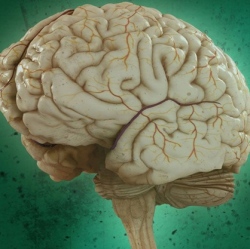
Scientists have developed a miniature brain with the equivalent brain maturity of a five-week-old fetus. The organoid, engineered from human skin cells, is the most complete human brain model developed, said Rene Anand, a professor of biological chemistry at Ohio State.
The lab-grown brain, about the size of a pencil eraser, has an identifiable structure and contains 99 percent of the genes present in the human fetal brain. Such a system will enable ethical and more rapid, accurate testing of experimental drugs before the clinical trial stage. It is intended to advance studies of genetic and environmental causes of central nervous system disorders.
“It not only looks like the developing brain, its diverse cell types express nearly all genes like a brain,” Anand said. “The power of this brain model bodes very well for human health because it gives us better and more relevant options to test and develop therapeutics other than [using] rodents.”
Anand reported on his lab-grown brain today (August 18) at the 2015 Military Health System Research Symposium in Ft. Lauderdale, Florida. The main thing missing in this model is a vascular system. But what is there, a spinal cord, all major regions of the brain, multiple cell types, signaling circuitry and even a retina, has the potential to dramatically accelerate the pace of neuroscience research, said Anand, who is also a professor of neuroscience.
